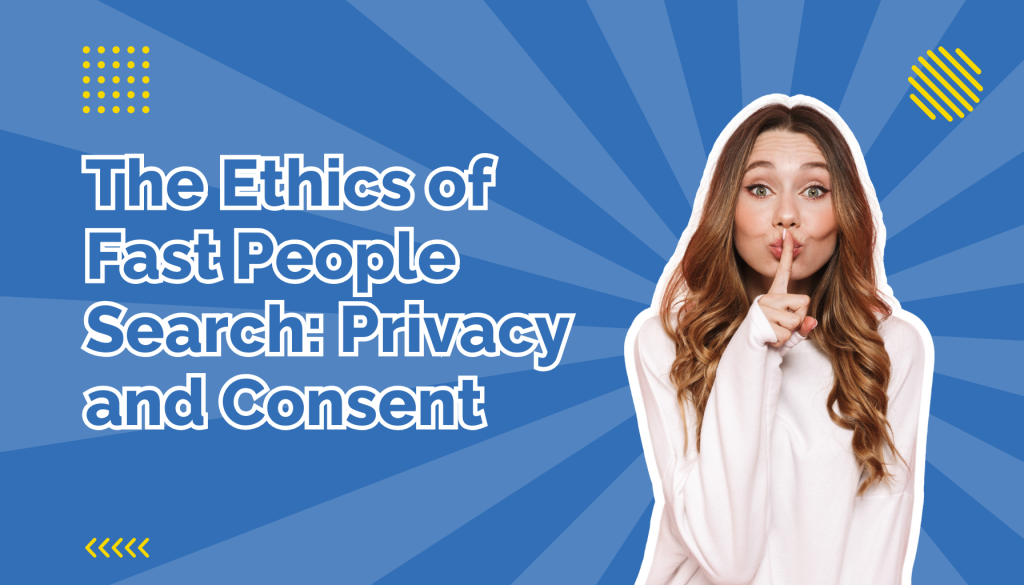The convenience of accessing vast amounts of information with a few keystrokes has brought about significant ethical dilemmas, particularly concerning innovation and privacy. Websites like Fast People Search offer a service that epitomizes this conflict by providing detailed personal information with unprecedented ease.
The Intricacies of Fast People Search
Fast People Search, like other data aggregation platforms, compiles public records, social media data, and other publicly available information into comprehensive profiles. These profiles can include a person’s address, phone number, email, and sometimes even more sensitive information. While the service can be invaluable for background checks, reconnecting with lost acquaintances, or verifying identities, it raises significant ethical questions. The ease of access to personal information without explicit consent from the individuals involved brings us to question the boundaries of privacy in the digital era.
The concept of privacy has evolved with the advent of the internet. Previously, accessing someone’s personal information required a deliberate search through physical records, which acted as a natural deterrent against casual or malicious invasions of privacy. However, platforms like Fast People Search remove these barriers, making personal data readily available to anyone with internet access. This ease of access challenges our traditional understanding of privacy, prompting a reevaluation of what information should be considered public and what should remain private.
Consent and Data Aggregation
A fundamental principle in the ethics of personal information is consent. The question of whether platforms should be allowed to compile and distribute personal data without explicit consent from the individuals involved is a contentious one. In the case of Fast People Search, the information provided is technically public; however, the aggregation of data from various sources into a single, easily accessible profile raises concerns about whether individuals have effectively lost control over their personal information. This situation underscores the need for clearer guidelines and regulations regarding consent.
Balancing Public Interest and Individual Rights
The Ethics of Fast People Search also involves balancing the public interest with individual rights. On one hand, there’s a public interest in having access to certain types of information, such as sex offender registries or professional licenses, which are essential for safety and accountability. On the other hand, unrestricted access to personal information can lead to stalking, harassment, or identity theft. Striking a balance between these competing interests is a complex ethical challenge that requires careful consideration of the implications for both privacy and public safety.
The ‘Fast People Search Opt Out’ Feature
In response to privacy concerns, Fast People Search and similar platforms often provide an opt-out feature, which allows individuals to request the removal of their information from the website. The fast people search opt out process is a critical step towards empowering individuals to regain some control over their personal information. However, the effectiveness and ease of the opt-out process vary, and it’s only a partial solution to the broader issue of digital privacy. This situation highlights the need for comprehensive regulations that protect individuals’ privacy while still allowing for the beneficial use of public information.
Moving Forward: Ethical Considerations and Future Directions
The Ethics of Fast People Search prompts a broader discussion about the ethical use of technology and the protection of privacy. As technology continues to evolve, so too must our ethical frameworks and regulations. The key to navigating the ethical minefield of digital information lies in developing a consensus on what constitutes reasonable use of public information, ensuring robust consent mechanisms, and providing individuals with practical tools to control their personal data. Ultimately, the goal should be to foster an online environment that respects individual privacy while accommodating the public’s right to information.
The ethics of fast people search encapsulates the ongoing struggle between the benefits of easy access to information and the imperatives of privacy and consent. By examining the ethical dilemmas posed by such platforms, we can begin to outline a path towards a more balanced and respectful digital landscape. As we move forward, it is imperative that we continue to question, critique, and refine our approaches to privacy and consent, ensuring that technology serves humanity’s best interests, rather than undermining them.

